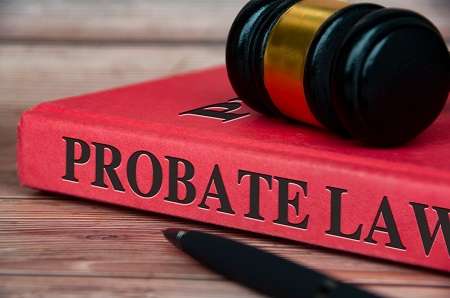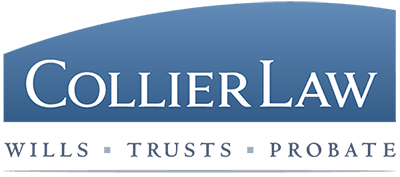You’re facing probate, and it’s overwhelming. Don’t worry, you’re not alone.
This guide unravels the complexities of probate, detailing what it is, its types, and when it’s necessary.
As an executor, understanding your role and the process is crucial. We’ll tackle common challenges and offer tips to streamline things.
And when you’re at your wits’ end, we’ll explain when it’s time to call in an experienced estate planning attorney for help.
Let’s navigate this winding road of probate together.
The Basic Concept of Probate

You’re exploring the basic concept of probate, which is the legal process to handle a deceased person’s estate. It’s important that you comprehend its fundamental aspects.
The probate process kicks in when someone passes away, and it’s the legal mechanism that ensures a deceased’s debts are paid and assets distributed according to their will. If there’s no will, the probate court decides how to distribute the assets based on state laws.
It’s a complex process that involves validating the will, appointing an executor or personal representative, cataloging the deceased’s property, paying debts, and distributing remaining assets.
Understanding the probate process can help you navigate it more efficiently, whether you’re planning your loved one’s estate or your own.
The Different Types of Probate
By studying the different types of probate, you’re gaining a deeper understanding of the process, and it’s helping you grasp how each type functions differently. The two significant types of probate you should be aware of are formal and informal probate.
- Formal Probate
- – This type is typically used when there are disputes over a will or the estate is complex. It involves court hearings and can be a lengthy process.
- Informal Probate
- – This is a simpler, more streamlined process often used when there are no disagreements among beneficiaries and the estate is relatively straightforward.
Understanding these differences can decrease your stress and confusion when navigating the probate process. Remember, it’s crucial to consult with an experienced probate attorney who can provide guidance tailored to your specific situation.
Determining If Probate Is Necessary
In figuring out if probate is necessary for your situation, you’ll need to consider both the complexity of the estate and whether any disputes among beneficiaries exist.
If the estate is small or uncomplicated, and there’s a clear, undisputed last will and testament, probate may not be required. However, if there are significant assets, multiple properties, or complex investments, it’s likely that probate will be necessary.
Disputes among beneficiaries can also necessitate probate. For instance, if there’s disagreement about the validity of the will or how assets are divided, a probate court can resolve these issues.
It’s a nuanced decision and one you shouldn’t make lightly. Consult with a seasoned estate attorney to ensure you’re making the best choice for your unique circumstances.
The Role of the Executor or Personal Representative in the Probate Process
As the executor or personal representative, you’ll handle many tasks during the probate process, and it’s essential to understand each one. This role requires both responsibility and diligence, as you’re entrusted with distributing the deceased’s estate fairly and in accordance with their last will and testament.
Here’s an overview of your key tasks:
- Managing the estate:
- – Safeguarding assets until they’re distributed.
- – Paying any debts or taxes out of the estate’s funds.
- Fulfilling legal obligations:
- – Lodging the will with the probate court.
- – Distributing assets to beneficiaries as dictated by the will.
Your role is critical in ensuring the smooth execution of the deceased’s last wishes. It’s a challenging task, but with careful planning, you’ll navigate it successfully.
Steps in the Probate Process
You’ll need to buckle up and prepare for the steps in the probate process, for it’s a journey that requires both patience and meticulous attention to detail. Initially, you’ll file a petition with the probate court to admit the will and appoint an executor. If there’s no will, an administrator will be appointed.
Once appointed, the executor or administrator takes charge of the deceased’s assets, pays any debts or taxes, and eventually distributes what’s left to the heirs. It’s a process that can take months or even years. You’ll need to be prepared for legal hurdles and potential disputes among heirs.
But with careful navigation, you can guide the estate through probate and ensure a fair distribution of assets. It’s a challenging task, but it’s not insurmountable.
Common Challenges in Navigating Probate
While you’re navigating the probate process, it’s often the case that you’ll encounter a variety of common challenges, such as disputes over the will, time-consuming paperwork, and unexpected claims against the estate. These hurdles can seem daunting, but don’t let them intimidate you.
Here’s a brief overview:
- Disputes over the will:
- – They may arise due to a lack of clarity or perceived unfairness.
- – Mediation can be a great tool to resolve conflicts.
- Time-consuming paperwork:
- – This involves a lot of legal jargon, making it complex.
- – Hiring a probate lawyer can ease this burden.
- Unexpected claims against the estate:
- – These might come from creditors or disgruntled family members.
- – It’s important to handle such claims promptly and professionally with the help of an experienced lawyer.
Tips for Streamlining the Probate Process
Your experienced attorney’s advice can be instrumental in streamlining the probate process. They’ll guide you through complex legalities, ensuring you take the right steps. Working closely with them, you’ll learn to organize the deceased’s financial affairs effectively—an essential task in avoiding unnecessary delays.
One tip is to consolidate the deceased’s assets into an estate account. It’ll simplify financial management and provide transparency to beneficiaries.
Next, consider paying valid claims against the estate promptly. It’s a smart move to avoid potential legal complications down the line.
Lastly, don’t underestimate the importance of accurate, timely record-keeping. It’s not only legally required, but it also helps resolve disputes and keeps the process on track.
Legal Assistance with Collier Law During Probate: When and Why
Both times of confusion and instances of dispute during probate are when you’d greatly benefit from legal assistance with Collier Law. Our expertise extends to every facet of comprehensive estate planning services, ensuring that all your concerns and issues are addressed knowledgeably and professionally.
Here’s how Collier Law can assist you:
In cases where probate is needed, we can:
- Help clear title to land, stocks, and bonds and smoothly transition these to the right beneficiaries.
- Resolve any disputes about the validity of the deceased person’s will.
- If the estate is simple and minimal in value, we can guide you through the short-form probate process.
With Collier Law, you’re not just getting legal advice; you’re gaining a partner who understands and respects your individual circumstances and needs. Contact us today for quality law advice.
Services we provide:
- Complex Estate Planning Law
- Probate Attorney
- Trust Attorney
- Guardianship & Conservatorship
- Last Wills and Testaments Attorney
Visit our FAQ page for answers to commonly asked questions about our law office.

